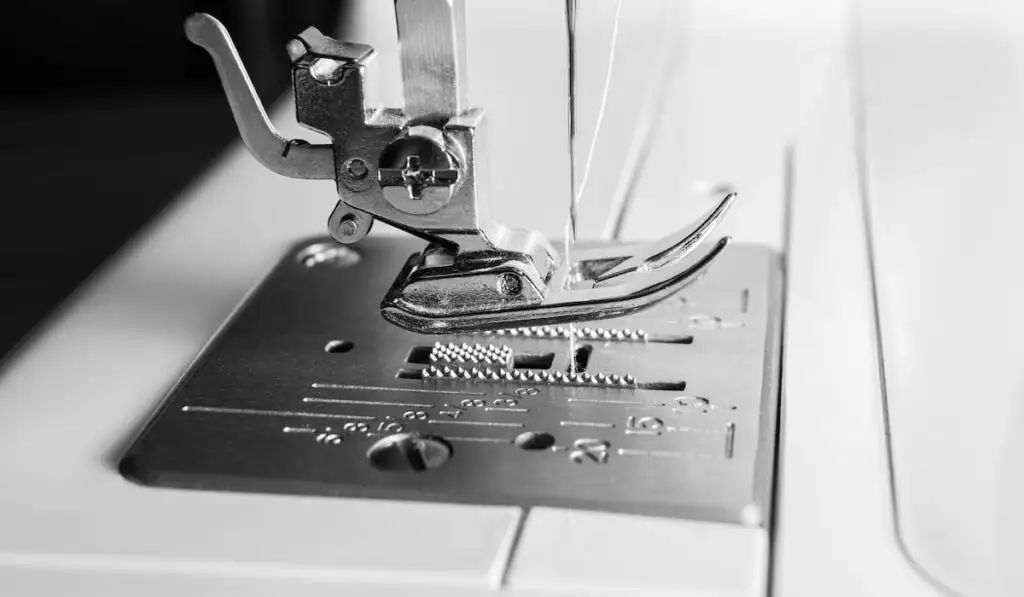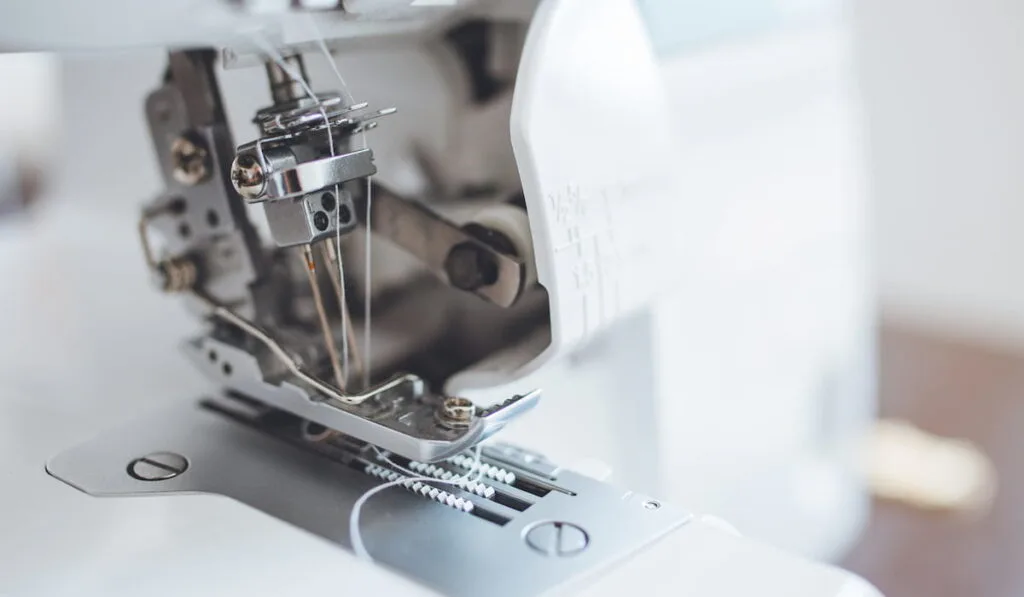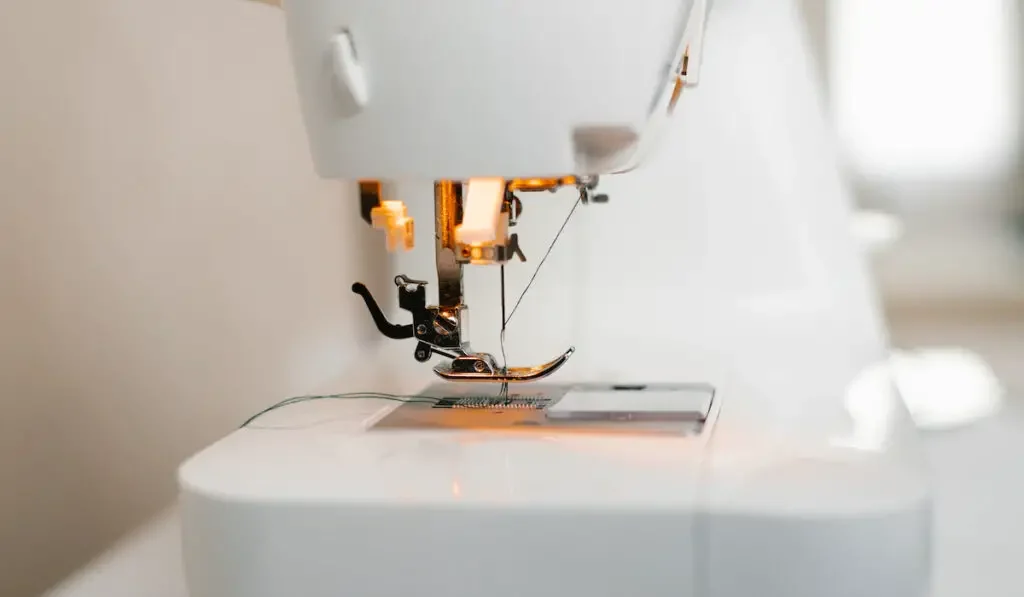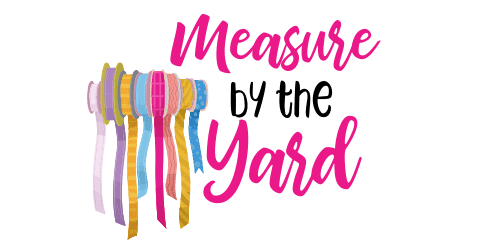Considering how similar sergers and sewing machines are, you may have considered the possibility of their parts being interchangeable. For one, you may have wondered if you can use sewing machine needles on sergers and vice-versa.
Do sewing machines and sergers use the same needles?
Sewing machines and sergers can use the same needles in some cases. It is not uncommon to find newer serger models that can work with regular sewing machine needles.
But not all new serger models work with sewing machine needles, and most older models are non-compatible with them.

If you are planning to use sewing machine needles on your serger, you probably have many questions. Thankfully, we answer most of the questions you might have and much more in the rest of this article.
Do Sewing Machines and Sergers Use the Same Needles?
Sewing machines and sergers can use the same needles—in some cases. Some of today’s serger models are designed to use sewing machine needles. But you may find that this is not always the case.
In fact, the compatibility of sewing machine needles with sergers is dependent on various factors, including specification and models.
In a couple of cases, serger manufacturers opt to design their needles uniquely. So, you may also find that the compatibility of sewing machine needles with sergers varies from brand to brand.
Why do serger manufacturers design their needles to be distinct? Well, one reason some serger brands have unique needle designs is for easy spotting.
If a serger needle were to fall among regular sewing needles, it would be tough to spot unless it is distinct.
Are Serger Needles Different Than Regular Sewing Machine Needles?
Serger needles are different from regular sewing machine needles. But when they are kept together, you might have a hard time distinguishing these two needle types. In other words, the differences between them aren’t super noticeable at a glance.
Differences Between Serger Needles and Regular Sewing Machine Needles
The Grooves
Regular sewing machine needles have no grooves; their shaft is smooth. Serger needles, on the other hand, are grooved.
Serger needles can have a groove on the front or back or one on both sides. You can try feeling the indentations with your fingernail, or you may use a magnifying glass.
Code/Number
Serger needles and universal sewing machine needles both come with numbers on their shanks. But the way these numbers are written differs.
While universal sewing machine needles use single numbers, serger needles use more than one number separated by a forward slash (/).
Length
Serger needles are usually shorter than regular sewing machine needles.
Manufacturer Name
Another way to tell serger needles apart from universal sewing machine needles is the manufacturer’s name. Companies like Organ, Pfaff, Bernina, and Elna are top names in the serger space. So, when you see them on the shank of a needle, the needle is most likely a serger needle.
In some cases, the company’s name may also have the word ‘serger’ after it.
Companies like Singer and Schmetz are some of the top makers of regular sewing machine needles. So, accordingly, you will find their name on universal sewing needles.
Of course, this does not mean Singer and Schmetz do not make serger needles. They are just more known for universal sewing needles.

Are Serger and Sewing Machine Needles Interchangeable?
Serger and sewing machine needles are sometimes interchangeable. As we have mentioned before, the compatibility between these needle types depends on specifications, brand, model, and much more. So, consult the manual to be sure that your serger needles are interchangeable with sewing machine needles.
Using serger and sewing machine needles interchangeably when they are incompatible is risky. You could get injured, or the fabric you are working on could get damaged. Always confirm that you can substitute the needles.
Does It Matter What Kind of Needle You Use for a Sewing Machine?
The kind of needle you use for a sewing machine matters. Depending on the type of fabric, designs, threads, or seams you are working on, you will need a different kind of needle for the best outcomes.
Failure to use the most appropriate needle for the intended purpose of sewing may just frustrate you. You will experience various issues such as:
- Fabric damaged with punch holes
- Thread breakage
- Seam puckering
- Poor stitches
- Needle breakage
Avoiding the issues stated above is pretty simple. Choose the right needle for your sewing machine, and your sewing should be trouble-free.

9 Tips for Choosing the Right Needle for Your Sewing Machine
- When choosing needles, choose smaller needles for lighter fabrics and larger needles for heavier fabric. If you use small-sized needles for heavy fabric, they will break readily. Then if you use large-sized ones for light fabric, the material will be defaced with punch holes.
- Needle sizing typically runs from 8 to 18, with the smaller ones having lower numbers and the larger ones having higher numbers.
- When working on loosely woven fabrics and knits, opt for ball-point needles.
- For materials like leather, vinyl, canvas, jeans, and denim, go for the needles specially made for them. Leather needles are for vinyl and leather. Denim needles are for jeans, denim, and canvas.
- You should enjoy using stretch needles on elastic materials as they prevent stitch skipping.
- When sewing layers of fabric at the same time, use quilting needles. Quilting needles have an extremely sharp point; this makes it easy for them to run through many layers of fabric at a go.
- You know the threads are too thick for the needle when they take up more than 40% of the eye.
- If you are working with thick threads, get embroidery needles or titanium needles. These two needle types have holes big enough to accommodate thick strands. So, you will not have to worry about thread breakage.
- For metallic threads, you need metallic needles. Using any other type of needle for metallic threads may cause thread breakage.
Final Thoughts
Some recent serger models are constructed to support the use of regular sewing machine needles. But not all of them offer such compatibility.
So, before you try switching serger needles and sewing machine needles for each other, check the manual. If the manual says it is possible, you may go ahead. But if it does not, do not switch the needles.
Going against the advice in the manual is risky.
Resources
- https://sewingiscool.com/sewing-machine-needles-vs-serger-needles
- https://www.ehow.com/how_6150865_tell-machine-needle-serger-needle.html
- https://www.threadsmagazine.com/project-guides/learn-to-sew/machine-needle-know-how
- https://www.singer.com/sewing-resources/choosing-the-right-machine-needles
- https://www.wikihow.com/Choose-the-Right-Sewing-Machine-Needle

